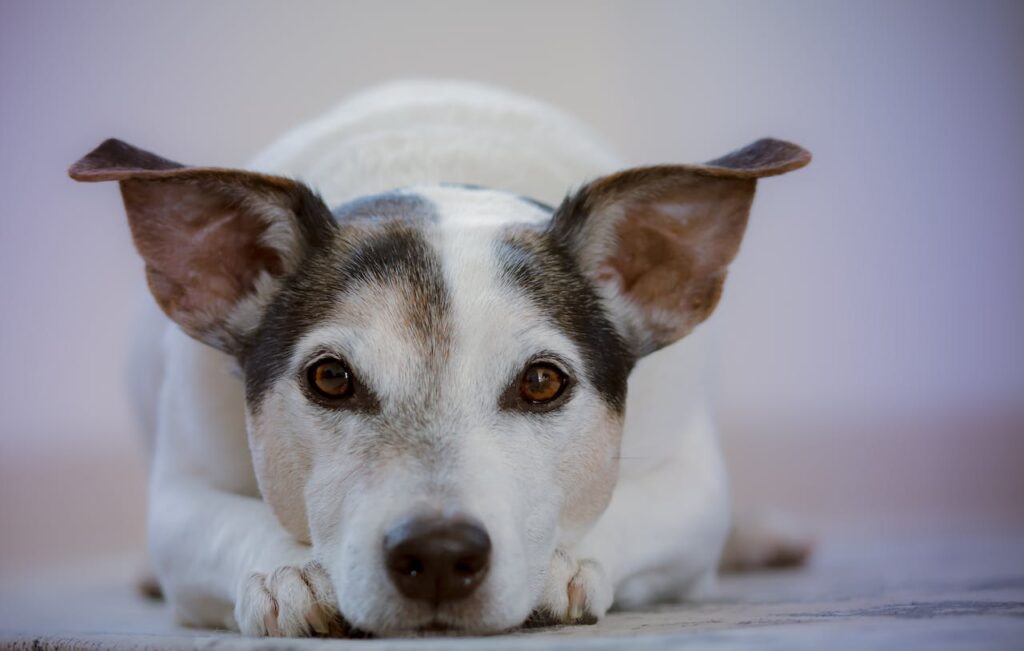If you've noticed an increase in your furry friend's gas emissions lately, you're not alone. Although flatulence in dogs is often a source of humor, it can cause concern for pet owners. Occasional toot is normal, but persistent or excessive gas may indicate an underlying problem.
What is dog gas?
According to Dr. Tracey Jensen, DVM, Dipl, ABVP, co-founder of Wellington Veterinary Hospital in Wellington, Colorado, gas is a natural byproduct of the digestive process. Dr. Jensen explains that the noise you hear inside a dog's belly is similar to the sound of a soda can and is the result of a combination of gas and liquid. Just like humans, dogs also experience burping, releasing gas from their intestines in the form of flatulence.
Also read: 5 notable benefits of hydrotherapy for dogs
Let's explore the potential reasons why your dog farts frequently.
Can food cause gas in dogs?
One of the most common causes of excessive bloating in dogs is their diet. Just like in humans, certain foods can cause gas in dogs. If you've recently changed your dog's diet or introduced new treats, your dog's digestive system may be adjusting. It is known that foods high in fiber, dairy products, and table scraps are common causes of gas. Gradually transitioning their diet and avoiding feeding them human food can help alleviate this problem.
Also read: Attention: Look for the signs of xylitol poisoning in your dog!
Food allergies and sensitivities:
Food allergies and sensitivities can manifest as gastrointestinal problems in dogs and lead to increased bloating. Common allergens include wheat, soy, corn, and certain protein sources. Consult your veterinarian to identify potential allergens and consider switching to a hypoallergenic or limited-ingredient dog food.
Eating too quickly increases gas in dogs
Dogs that munch on their food without chewing it properly can also ingest air with their food, which can lead to increased bloating. Using a slow feeder bowl or an interactive feeding toy will slow down the pace at which they eat and make them less likely to swallow excess air.
Bacterial imbalance in the gut:
The delicate balance of bacteria in your dog's digestive system plays an important role in your dog's overall health. An imbalance in this balance, such as an overgrowth of certain bacteria, can lead to increased gas production. Your veterinarian may recommend probiotics to restore balance and promote a healthy gut microbiome.
Medical condition:
Underlying medical conditions such as gastrointestinal infections, inflammatory bowel disease (IBD), and pancreatitis can contribute to excessive bloating in dogs. If your dog's farts are accompanied by other symptoms such as diarrhea, vomiting, or lethargy, it's important to consult your veterinarian for proper diagnosis and treatment.
Also read: Can dogs have kidney failure?
Breed trends:
Certain breeds are more prone to bloating due to their anatomy and digestive systems. Short-nosed dog breeds, such as bulldogs and pugs, swallow more air while eating, which can lead to increased gas. Although you cannot change your dog's predisposition, you can reduce symptoms by actively managing your dog's diet and feeding habits.
Occasional farts are a normal part of a dog's life, but persistent or excessive flatulence shouldn't be ignored. By understanding the potential reasons behind your dog's increased gas production, you can address the problem. Consult your veterinarian and work with them to rule out any underlying health concerns and come up with a plan to make your furry friend's digestion more comfortable. With the right approach, you and your dog can happily coexist without producing gas.
Artificial intelligence helped edit this article.
Click here to read more articles by Dumani Moyo

